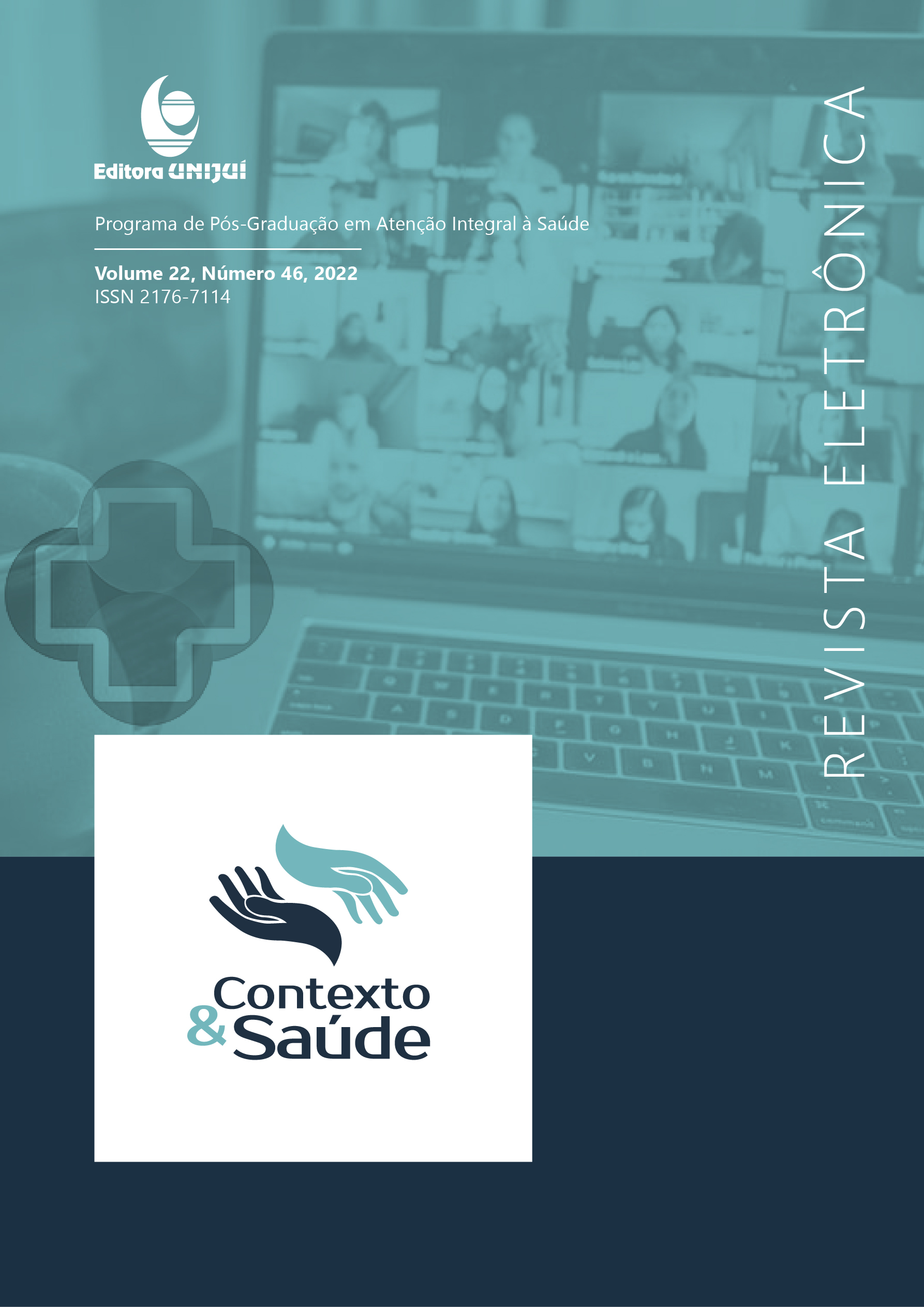Alterações de memória prospectiva relacionadas com o câncer: Uma revisão sistematica
DOI:
https://doi.org/10.21527/2176-7114.2022.46.13335Palavras-chave:
Cancer, Cancer-related cognitive impairment, Prospective memory, Systematic reviewResumo
Alterações e queixas cognitivas relacionadas com o câncer podem reduzir o bem-estar, a qualidade de vida e o funcionamento diário. Recentemente, a memória prospectiva (MP), i.e., a capacidade de planear uma intenção, retendo-a durante um período variável de tempo enquanto a pessoa está tipicamente envolvida em outras tarefas, recuperando-a em circunstâncias apropriadas, tem recebido atenção crescente no âmbito da investigação no câncer. Exemplos de MP são lembrar de perguntar sobre uma determinada informação durante uma visita médica (MP baseada em eventos/MPBE) ou de tomar medicação num determinado horário (MP baseada em tempo/MPBT). Este trabalho objectivou rever os principais achados sobre o funcionamento da MP no câncer. Foi realizada uma revisão sistemática qualitativa da literatura seguindo as orientações PRISMA, sendo que 20 artigos publicados entre 2000 e 2020 foram incluídos. Pessoas com historial de cancro (vs. controlos saudáveis) reportaram mais queixas e pior performance de MP, especialmente no caso de MPBE. Alguns tratamentos como a quimioterapia, terapia de privação androgénica e radioterapia influenciaram negativamente a MP. Alterações de MP foram associadas a pior qualidade de vida. Adicionalmente, a fadiga e a depressão contribuem para alterações na MP. Foi verificada uma ausência de associação entre medidas objectivas e subjectivas de MP, o que parece sugerir que diferentes facetas podem explicar as alterações de MP. Portanto, a inclusão de medidas de MP aquando da avaliação de alterações cognitivas é relevante não só para melhor caracterizar a experiência de cancro ao longo do tempo, mas também para informar planos interventivos e de reabilitação cognitiva.
Downloads
Publicado
Como Citar
Edição
Seção
Licença
Copyright (c) 2022 Revista Contexto & Saúde

Este trabalho está licenciado sob uma licença Creative Commons Attribution 4.0 International License.
Ao publicar na Revista Contexto & Saúde, os autores concordam com os seguintes termos:
Os trabalhos seguem a licença Creative Commons Atribuição 4.0 Internacional (CC BY 4.0), que permite:
Compartilhar — copiar e redistribuir o material em qualquer meio ou formato;
Adaptar — remixar, transformar e criar a partir do material para qualquer fim, inclusive comercial.
Essas permissões são irrevogáveis, desde que respeitados os seguintes termos:
Atribuição — os autores devem ser devidamente creditados, com link para a licença e indicação de eventuais alterações realizadas.
Sem restrições adicionais — não podem ser aplicadas condições legais ou tecnológicas que restrinjam o uso permitido pela licença.
Avisos:
A licença não se aplica a elementos em domínio público ou cobertos por exceções legais.
A licença não garante todos os direitos necessários para usos específicos (ex.: direitos de imagem, privacidade ou morais).
A revista não se responsabiliza pelas opiniões expressas nos artigos, que são de exclusiva responsabilidade dos autores. O Editor, com o apoio do Comitê Editorial, reserva-se o direito de sugerir ou solicitar modificações quando necessário.
Somente serão aceitos artigos científicos originais, com resultados de pesquisas de interesse que não tenham sido publicados nem submetidos simultaneamente a outro periódico com o mesmo objetivo.
A menção a marcas comerciais ou produtos específicos destina-se apenas à identificação, sem qualquer vínculo promocional por parte dos autores ou da revista.
Contrato de Licença (para artigos publicados a partir de setembro/2025): Os autores mantém os direitos autorais sobre seu artigo, e concedem à Revista Contexto & Saúde o direito de primeira publicação.

